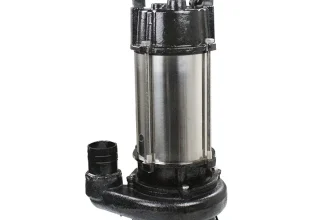Are you dealing with unpleasant odors coming from your sump pump?
If so, you’re not alone. Overflowing water, sewage backups, and other sources of moisture can cause sump pump odors that can be difficult to get rid of. Fortunately, there are a number of steps you can take to eliminate sump pump odors, remove sump pump odors, and reduce sump pump odors.
In this article, we’ll be taking a look at some of the best sump pump odor solutions and sump pump smell solutions, as well as sump pump odor removal and sump pump smell removal techniques.
Introduction
Sump pump odors can be caused by a variety of factors, including sewage backups, overflowing water, and even natural gas leaks. Fortunately, there are a number of ways to combat sump pump odors, from sump pump odor prevention techniques to sump pump smell reduction strategies.
In this article, we’ll be taking a look at a variety of strategies for getting rid of sump pump odors, from cleaning and treating the sump pump to installing an odor eliminating filter or using chlorine bleach to neutralize odors. Let’s get started!
Identifying the Source of the Odor
The first step in getting rid of sump pump odors is to identify the source of the odor. Inspect the sump pump and its surrounding area for any signs of moisture or water buildup. Check for any possible sources of sewage, such as broken pipes or clogged drains.
It’s also a good idea to check for any possible sources of natural gas leaks.
Common Causes of Sump Pump Odors
There are a number of common causes of sump pump odors. Overflowing water is a common cause of sump pump odors, as is sewage backup. Other causes of sump pump odors include clogged or malfunctioning pumps, mold and mildew buildup, and natural gas leaks.
Cleaning the Sump Pump
Once you’ve identified the source of the odor, it’s time to start cleaning the sump pump. Start by unplugging the pump and removing any debris or dirt from the area. Then, use a garden hose to flush out any debris or mud that may be stuck in the pump. Once the area is clean, use a shop vacuum to remove any remaining debris or water.
Treating the Odor with Bacteria Eliminating Products
Once the sump pump is clean, you can treat the odor with bacteria eliminating products. These products are designed to kill bacteria and other microorganisms that can cause odors. Look for products that contain enzymes or other bacteria eliminating ingredients.
Installing an Odor Eliminating Filter
Installing an odor eliminating filter is another effective way to reduce sump pump odors. These filters are designed to trap odors and prevent them from entering your home. They’re relatively inexpensive and easy to install.
Dealing with Sewage Related Odor Sources
If the source of the odor is related to sewage, it’s important to take steps to deal with the issue. Start by identifying the source of the sewage, such as a broken pipe or clogged drain. Then, take steps to repair or replace the pipe or drain, and use a shop vacuum to remove any remaining sewage and water.
Maintaining the Sump Pump
Maintaining your sump pump is an important step in preventing sump pump odors. Make sure to regularly inspect the sump pump for signs of wear and tear, and replace any worn or damaged parts. Additionally, make sure to clean out the pump on a regular basis.
Replacing the Sump Pump
In some cases, the best option may be to replace the sump pump. If the pump is older or has sustained significant damage, replacing it may be the only way to get rid of sump pump odors. Make sure to hire a qualified professional to install the new pump.
Using Chlorine Bleach to Neutralize Odors
In some cases, you may need to use chlorine bleach to neutralize odors. Start by unplugging the sump pump and removing any debris or dirt. Then, mix one part chlorine bleach with four parts water and pour the mixture into the sump pump. Make sure to wear protective clothing and eye protection while handling the bleach.
Tips for Avoiding Sump Pump Odors in the Future
To avoid sump pump odors in the future, make sure to regularly inspect and maintain your sump pump. Clean out the pump on a regular basis, and make sure to check for any signs of wear and tear.
Additionally, make sure to check for any possible sources of sewage, such as broken pipes or clogged drains.
Conclusion
Sump pump odors can be unpleasant, but there are a number of steps you can take to get rid of them. Start by identifying the source of the odor, such as overflowing water or sewage backups. Then, clean the sump pump and treat the odor with bacteria eliminating products.
You can also install an odor eliminating filter and use chlorine bleach to neutralize odors. Finally, make sure to regularly inspect and maintain the sump pump to avoid sump pump odors in the future.
Top Ten Key Takeaways
1. Identify the source of the odor.
2. Clean the sump pump.
3. Treat the odor with bacteria eliminating products.
4. Install an odor eliminating filter.
5. Deal with sewage related odor sources.
6. Maintain the sump pump.
7. Replace the sump pump if necessary.
8. Use chlorine bleach to neutralize odors.
9. Avoid sump pump odors in the future by regularly inspecting and maintaining the sump pump.
10. Wear protective clothing and eye protection when handling chlorine bleach.
If you’re dealing with unpleasant sump pump odors, don’t despair! With the right tools and techniques, you can get rid of sump pump odors and reduce sump pump odors.
Take the steps outlined in this article to eliminate sump pump odors, remove sump pump odors, and reduce sump pump odors so you can enjoy a fresh, odor free home.




